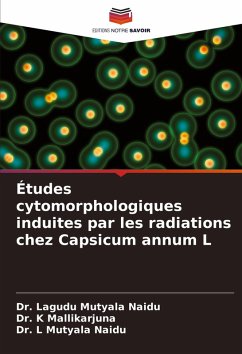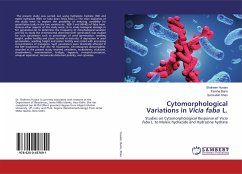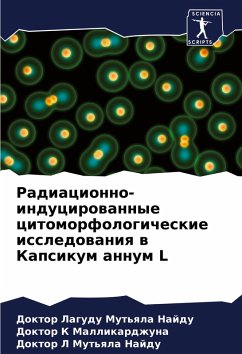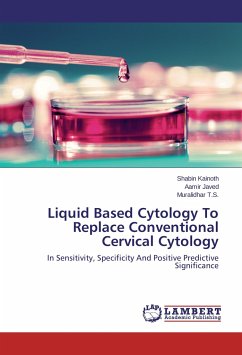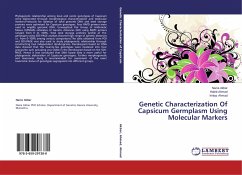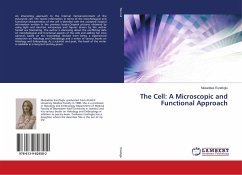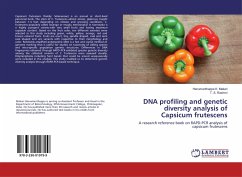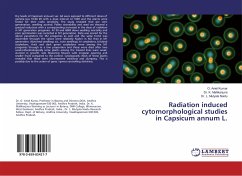
Radiation induced cytomorphological studies in Capsicum annum L.
Versandkostenfrei!
Versandfertig in 6-10 Tagen
27,99 €
inkl. MwSt.

PAYBACK Punkte
14 °P sammeln!
Dry Seeds of Capsicum annuum var. G4 were exposed to different doses of gamma-rays 10-60 kR with a dose interval of 10kR and the plants were tested for their radio sensitivity. The study revealed that per cent germination, seedling survival, Pollen stainability and seed set showed a gradual reduction with a corresponding increased in the dose of radiation in M1 generation progenies. At 50 and 60kR doses seedling mortality and poor germination was recorded in M1 generation. Data was scored for the above parameters for M2 progenies as well and the same trend was discernible through the values we...
Dry Seeds of Capsicum annuum var. G4 were exposed to different doses of gamma-rays 10-60 kR with a dose interval of 10kR and the plants were tested for their radio sensitivity. The study revealed that per cent germination, seedling survival, Pollen stainability and seed set showed a gradual reduction with a corresponding increased in the dose of radiation in M1 generation progenies. At 50 and 60kR doses seedling mortality and poor germination was recorded in M1 generation. Data was scored for the above parameters for M2 progenies as well and the same trend was discernible through the values were relatively higher in M2 than in M1 generation. Abnormal seedlings viz., twin seedlings, tri cotyledons, bi-lobed cotyledons, thick and dark green cotyledons were among the M1 progenies through in a low proportion and those were died after two weeks.Morphologically some plants among the treated lines were weak, stunted in growth, late flowering flowers with irregular opening and smaller fruits compared to the control. Cytologically check of these plants revealed that these were chromosome stickiness and clumping. This is possibly due to the action of gene / genes controlling stickiness.



